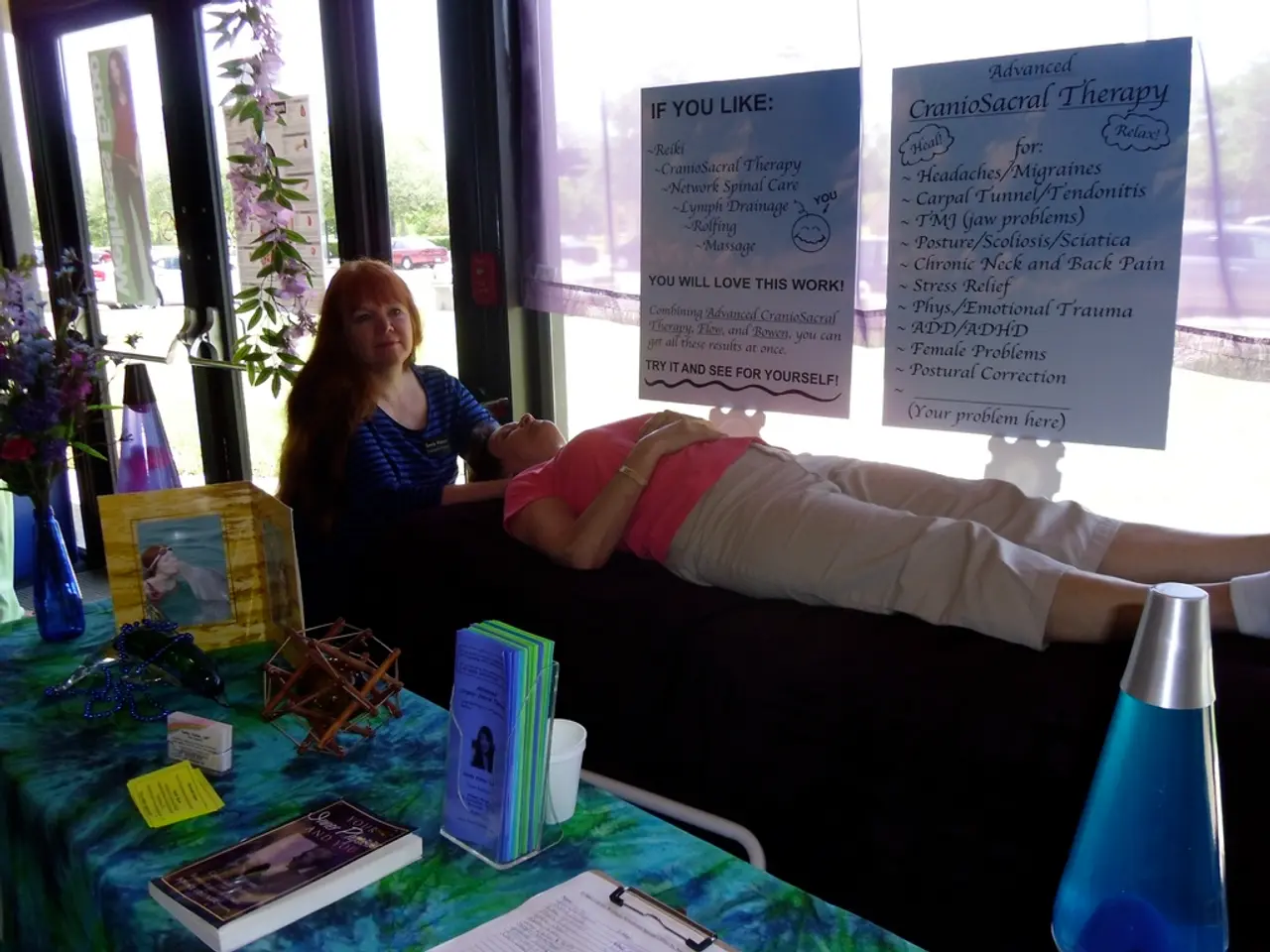Society's Transformation Through Individual Reconnection: Insights from Rae Johnson
Rae Johnson's book, "Embodied Activism," presents a revolutionary approach to social and political activism. This methodology emphasizes the importance of somatic movement therapy, a practice that connects the body and mind to social justice work.
At the heart of this approach lies the recognition that activists must pay attention to their bodily sensations, emotions, and movement as essential aspects of their work. By grounding themselves in their bodies, activists can attune to their physical and emotional states rather than dissociating or overextending themselves.
One key strategy is the incorporation of somatic practices that help regulate the nervous system, thereby mitigating stress and preventing burnout commonly experienced in sustained activism.
Rae Johnson also advocates for an integrated connection between personal embodiment and collective social justice goals. This connection allows activists to embody the change they wish to see, rather than only working intellectually or externally.
Moreover, creative somatopic imagination is encouraged, meaning body-centered reconfigurations of how social justice is imagined and enacted. This approach promotes innovative, sustainable activism modalities aligned with one's lived experience of the body and social structures.
In essence, this embodied methodology reframes activism as a holistic practice that includes somatic health and emotional resilience as necessary foundations for long-term social change work.
While specific somatic movement techniques or detailed therapeutic protocols are not provided, the core principle is to use somatic movement therapy as a way to create sustainable activism by healing and maintaining bodily and emotional well-being alongside social justice engagement.
Rae Johnson's work underscores the importance of mindfulness and body awareness in activism to maintain emotional well-being. She encourages activists to seek support from peers and mentors to avoid isolation and maintain mental health. Self-care practices, including taking breaks and engaging in activities that promote relaxation and rejuvenation, are also emphasized.
Rae Johnson stresses the significance of self-reflection and self-compassion for activists to sustain their efforts over time. She asserts that taking care of one's physical, emotional, and mental health is essential for long-term activism.
Concerned about the high levels of burnout among social and political activists, Rae Johnson suggests that activists incorporate physical practices into their activism to manage stress and prevent burnout. She believes that self-care practices can help activists stay motivated and effective in their work.
Rae Johnson proposes that the process of making change is more sustainable when one prioritizes self-care. She encourages activists to set boundaries and prioritize self-care to prevent burnout and maintain overall well-being.
In conclusion, Rae Johnson's "Embodied Activism" offers a refreshing perspective on activism, emphasizing the importance of holistic health and self-care for sustainable change.
- Rae Johnson's approach to activism, as presented in her book "Embodied Activism," emphasizes the integration of science-backed therapies and treatments for mental health, such as somatic movement therapy, as crucial for long-term social change work.
- A key part of Johnson's methodology involves education and self-development, encouraging activists to focus on personal growth, which includes mindfulness, body awareness, and self-care practices, to maintain emotional well-being and prevent burnout.
- Johnson champions the role of mental health in activism, advocating for support from peers, mentors, and various health-and-wellness practices, like creative somatopic imagination and self-reflection, to foster holistic, sustainable activism modalities.




